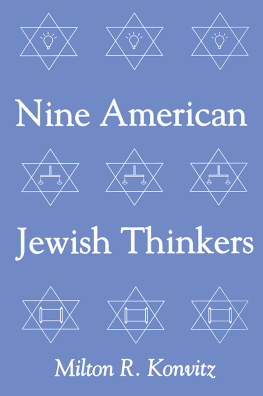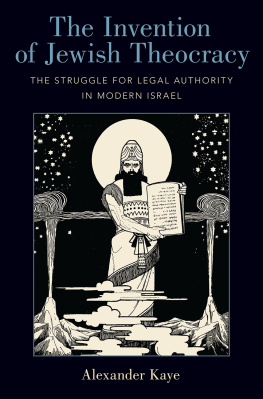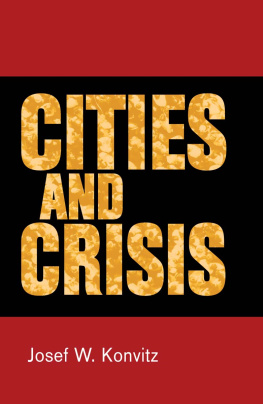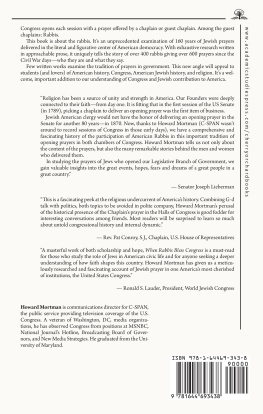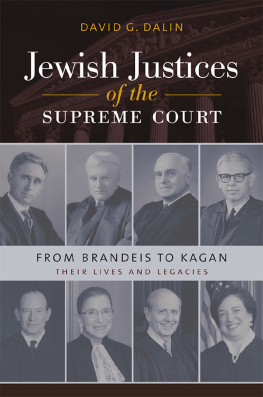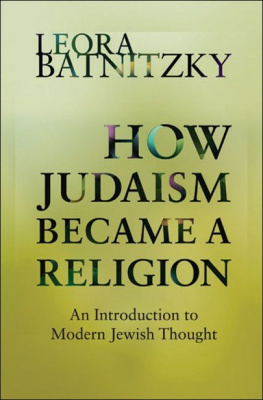Nine American Jewish Thinkers
Books by M ilton R. Konvitz
Author
On the Nature of Value
The Alien and the Asiatic in American Law
The Constitution and Civil Rights
Civil Rights in Immigration
Fundamental Liberties of a Free People: Religion, Speech, Press, Assembly
A Century of Civil Rights
Expanding Liberties
Religious Liberty and Conscience
Judaism and the American Idea
Torah and Constitution: Essays in American Jewish Thought
Nine American Jewish Thinkers
Editor
Bill of Rights Reader: Leading Constitutional Cases
First Amendment Freedoms: Selected Cases
on Freedom of Religion, Speech, Press, Assembly
Judaism and Human Rights
The Recognition of Ralph Waldo Emerson
Emerson: A Collection of Critical Essays (with Stephen E. Whicher)
The American Pragmatists (with Gail Kennedy)
Freedom and Experience (with Sidney Hook)
Essays in Political Theory (with Arthur H. Murphy)
Aspects of Liberty (with Clinton Rossiter)
Law and Social Action: Selected Essays of Alexander H. Pekelis
Education for Freedom and Responsibility by Edmund Ezra Day
Liberian Code of Laws; Liberian Code of Laws Revised;
Liberian Law Reports
Nine American Jewish Thinkers
Milton R. Konvitz
First published 2000 by Transaction Publishers
Published 2017 by Routledge
2 Park Square, Milton Park, Abingdon, Oxon OX14 4RN
711 Third Avenue, New York, NY 10017, USA
Routledge is an imprint of the Taylor & Francis Group, an informa business
Copyright 2000 Taylor & Francis.
All rights reserved. No part of this book may be reprinted or reproduced or utilised in any form or by any electronic, mechanical, or other means, now known or hereafter invented, including photocopying and recording, or in any information storage or retrieval system, without permission in writing from the publishers.
Notice:
Product or corporate names may be trademarks or registered trademarks, and are used only for identification and explanation
Library of Congress Catalog Number: 00-037388
Library of Congress Cataloging-in-Publication Data
Konvitz, Milton Ridvas, 1908-
Nine American Jewish thinkers / Milton R. Konvitz.
p. cm.
Includes bibliographical references and index.
ISBN 0-7658-0028-4 (alk. paper)
1. Jewish philosophersUnited StatesBiography. 2. Jewish judgesUnited StatesBiography. 3. United States. Supreme CourtBiographyHistory. 4. RabbisUnited StatesBiography 5. JewsUnited StatesIntellectual life20th century. 6. United StatesCivilizationJewish influences. 7. United StatesBiography. I. Title.
El 84.37 .A153 2000
973.049240099dc21
00-037388
ISBN 13: 9780765800282 (hbk)
For Mary
Many waters cannot quench love,
neither can the floods drown it.
Song of Songs
Now let us go forward, whether we shall give
xglory to another man, or he to us.
Homer
Contents
Acknowledgments
Grateful acknowledgement is made to the following publishers or publications for permission to reprint essays in this book, as follows:
New York University Press for the essays on Horace M. Kallen and Morris Raphael Cohen from The Other New York Jewish Intellectuals, Carole S. Kessner, ed. (1994), and the essay on Jacob Agus from American Rabbi: The Life and Thought of Jacob Agus, Steven T. Katz, ed. (1996).
Prometheus Books for the essay on Sidney Hook from Sidney Hook: Philosopher of Democracy and Humanism, Paul Kurtz, ed. (1983).
Bnai Brith for the essay on Louis D. Brandeis from Great Jewish Personalities in Modern Times, Simon Noveck, ed. (1960).
Theodor Herzl Foundation for the essay on Benjamin Nathan Cardozo that appeared in the May/June 1999 issue of Midstream and part of the essay on Leo Jung that appeared in the August/ September 1993 issue of the magazine.
American Jewish Congress for the essay on Robert Gordis that was published in Judaism, Winter 1993 issue.
As the captives sat by the waters of Babylon, they asked, How shall we sing the Lords song in a foreign land? In a score or more of centuries, by the waters of many lands, Jews have asked this question. In the twelfth century in Spain, Judah Halevi cried that though he lived in the West, his heart was in the East.
Today, as I write these words, a Jew is poet laureate of the United States, by appointment of the Library of Congress. As he sits by the waters of the Potomac, Robert Pinsky does not mourn that his heart is in the East and does not ask, How shall I sing the Lords song in a foreign land. Though he has not forgotten Jerusalem, with Walt Whitman he believes that the United States themselves are essentially the greatest poem. How can the greatest poem not be the Lords song?
The nine American Jews about whom I write in this book were not poets. They were philosophers, or jurists, or rabbis. They did not consider themselves captives sitting by the waters of Babylon, and though each of them, in his own private way, remembered Jerusalem, each in his own way sang the Lords song and believed that the United States was the greatest poem, perhaps even the Lords song.
Six of the persons about whom there are essays in this book are widely known and are readily accepted as American Jewish thinkers; namely, Horace M. Kallen, Morris Raphael Cohen, Louis D. Brandeis, Leo Jung, Robert Gordis, and Jacob B. Agus. One may, however, wonder how I have come to include essays on Sidney Hook, Justice Cardozo, and Justice Frankfurter, for they were not known in their lifetime to have made important contributions to Jewish life or thought. They are included because their work reflected essential Jewish values. Each in his own way dedicated his life to tikun olam, to the betterment of life and the advancement of human ideals. Justice Cardozo and Justice Frankfurter each used his genius, his superior intellectual gifts in legal analysis and creative interpretation and insights in the interests of justice; and Sidney Hook applied his massive powers of intelligence, of reason and intellect, to the pursuit of truth and the enhancement of human liberty and righteousness.
The nine persons belong together as American thinkers. Their Americanism permeated all their thoughts. But how Jewish were they? This is a rather thorny question. If their Jewishness is defined by religion, then only the three rabbis and possibly Cardozo would qualify; the other five clearly belong in the nonreligious, or secularist, category. But I mention this differentiation only to brush it aside, for I see no great wall of separation that keeps apart the secularists from the religious Jews. In this complex world secularists often serve God more handsomely than do members of synagogues or temples. When the Supreme Court in 1954 (with Felix Frankfurter playing a key role behind the scenes) unanimously agreed to outlaw segregation of the races in public schools, was the Courts action secular or religious? When, in 1990, Congress passed the statute known as the Americans With Disabilities Act, that requires equality of treatment of handicapped persons, was the action secular or religious? Is a minimum wage act secular or religious? Is Medicaid a secular or a religious act? The lines of distinction are not merely blurred, they are no longer relevant. Horace Kallen wrote a book with the title

